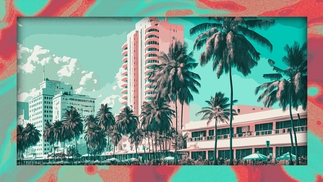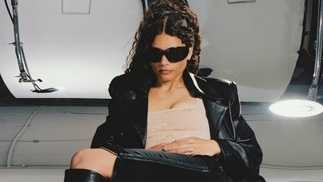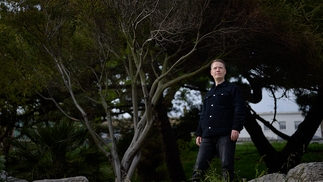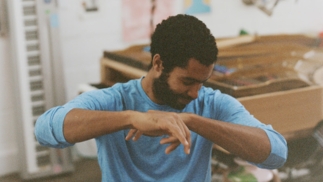BOOM JINX MAKES A BOOMING DEBUT WITH 'NO ANSWERS IN LUCK'
Boom Jinx shares his heart and soul in a bare-it-all interview
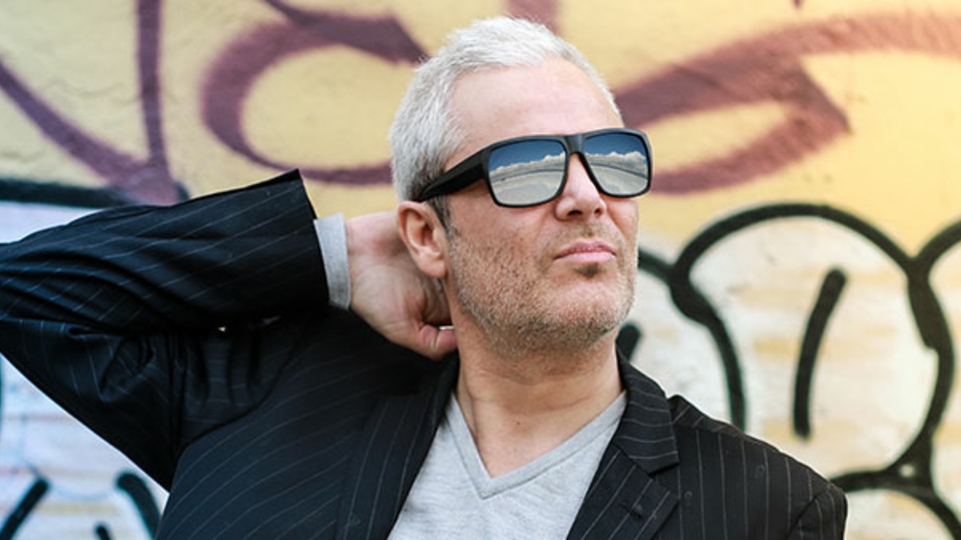
Boom Jinx has created a crown jewel. It’s been nine years in the making and along the way, the enigmatic artist has managed to gather together his feelings, innate musical genius, talented collaborators and most importantly, the pieces of himself, assembling them into an audible experience that touches the heart. ‘No Answers In Luck’, his debut LP recently released on Anjunabeats, is as enchantingly honest and sensitive as the artist himself.
It may be hard to make a floor banger that gets people moving. However, it’s eons away from the strength and skill required to make a record that moves people to tears — let alone an entire album. That is precisely what Øistein Johan Eide, the veteran producer from Bergen, Norway known as Boom Jinx, has done. As Øistein, he has been making music for 25 years, scoring some of the world’s biggest video games and network television shows; as Boom Jinx, he has delivered dance music hits and become an Anjunabeats label mainstay. Those decades spent toiling have culminated in something that rewards listeners as much as it does the artist himself. Though the album varies vastly in timbre, tone and texture, ranging from jazz-imbued melodies to the soaring strings and heart-wrenching harmonies fans expect from Boom Jinx, an overwhelming sense of vulnerability threads it all together. ‘No Answers In Luck’ imparts the sensation that its creator is sharing something deeply personal, raw and still uncertain of its own power.
The candor with which Øistein outlines the details of his life in conversation is reflected in the album itself. “A sonic journey should visit places other than a nightclub, as should the mind,” he tells us. Indeed, ‘No Answers In Luck’ moves mind and spirit alike. Unexpected sounds prompt ears to reconsider what is heard, while quivering strings and cinematic breakdowns crack hearts wide open. ‘Half The Man’ is gut-wrenching as the title alludes, with lyrics that tell of a life lost and found; the emotive orchestral arrangement in ‘Forgotten September’ is as melancholic as it is inspiring, while ‘Coming Home’ is as suited to the dancefloor as it is to weeping in silence on a night spent alone.
And yet for all of the album’s angst, there is a shy optimism that peeks through. Peace found amid the pain. The soaring vocals in ‘Ahead Of The Storm’ echo the truth that we all need to hear sometimes: “This is the moment you’ve been waiting for. It’s your life, let’s write the story over.” The track is true to its title, an uplifting journey that suggests a tortured soul has emerged from the black clouds, racing ahead with the wind at his back, looking to bring more magic to the world.
If such is the case, we couldn’t be happier. Øistein Johan Eide is a man who is as talented as he is articulate. In a dialogue with DJ Mag USA that includes some very personal questions, his answers, like his album, do not disappoint.
You’ve created a deeply emotional piece of work. What story are you telling with it?
“Above all, ‘No Answers In Luck’ is a musical representation of Boom Jinx, and it's the first of its kind. There's a wide variety of stuff on this album, and my music is a reflection of, well ... me. If there's a story in there, it's not a story I can easily put into words. Find that unacceptable, do you? Fine, have it your way: A long time ago in a galaxy far, far away... ”
It’s been a very long road from that galaxy far, far away, hasn’t it?
“The Personal Notes of an Emotional Trainwreck. And thus, Jinxy unknowingly named his own autobiography (but imagine if that was the title of my sex tape). I was diagnosed with borderline personality disorder (BPD) at 40 years of age. I'm not gonna bore you with the details, but it's not the easiest thing to live with, there's no medication to speak of, and it's one of the hardest things in psychotherapy to treat. It's fairly common for people with BPD to try to, umm, ‘medicate’ themselves.
“Let's just say that diagnosis explained a lot, but it also gave me an opportunity to fight a lot of inner demons I previously couldn't identify. Unless you run into me covered in what could be mistaken for baking soda, holding a bottle of hard liquor while in the middle of a rant that includes having an IQ of 187, I have won that fight. Boom. That's not a fight everyone wins, sobering up and taking care of yourself, is it? Well, there are no answers in luck.”
So what was it that made you think, "Sure, I'll take on this massive project that will drive me to the edge for years..."
“I really wanted to show what I'm about musically, which is so much more than what most people associated with Boom Jinx. There was a point in my career where I realized my music was reaching millions of people through games and TV commercials, nobody really cared about it, and I was usually making music for anyone but myself. When I did do it for myself, it would end up as demos or drafts I couldn't really share with anyone but my friends. Boom Jinx changed all that, and the only way to display the true spectrum of who I really am as an artist and musician under the same moniker was to make an album.”
What surprised you most about the process?
“How hard it would be. It took so long to get to the point where it was ready to be released, and I had to do/redo so many things it became a burden. We're talking severe depressions topped with a deeply profound need to finish it. Let's not forget needs overpower desires, so yeah, that was a spectacularly lovely situation ... for a spectacular period of, uh, lovely time. Spectacular. Lovely. Welcome to the Musician's Sarcasm Summit of 2015! It certainly has been a learning experience, and there are some welcome firmware upgrades ‘upstairs’ when it comes to dos and don'ts.”
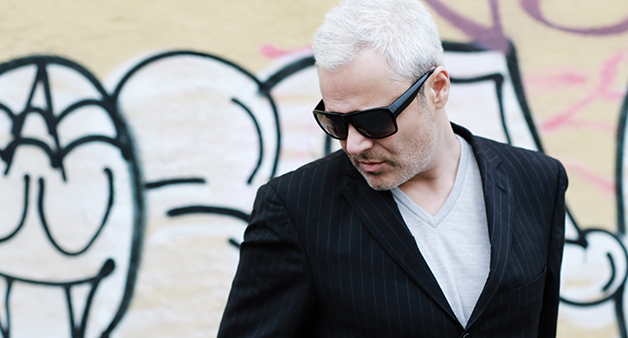
This album makes us cry. Why did you expose your soul and your struggles so openly?
“That came naturally. It had to. The reason I became a musician to begin with was because I found an outlet to express myself emotionally, but I would be lying if I didn't say a big part of it was – and still is – to give me a sense of self-worth. I'm nowhere near being able to say I don't care what people think of my music, and I honestly hope I never get there. With that said, you can probably imagine what hearing you say my music makes you cry actually means to me. Hold my Red Bull while I write you a check.”
We won’t accept money for tears. But tell us about your inspiration...
“I've always found this a difficult question to answer because the need to express myself creatively usually overshadows simply described sources of inspiration. ‘Lunar Arcade’ might be the most obvious exception as it taps into nostalgic memories of old computer and video games.
“I grew up being an avid gamer, and I was only 16 or 17 when an American game developer hired me to make music for a Commodore Amiga game. That was a big moment for a Norwegian kid searching for himself. I was virtually levitating for weeks. There are actually some Commodore 64 SID chip sounds in ‘Lunar Arcade’, alongside strings that remind me of the ‘80s soap opera, 'Dynasty'. Blake, Crystal, Alexis – anyone?"
‘80s soaps aside, what feelings are you looking to leave listeners with?
“I really hope the album takes people on a little journey, makes them feel... something. To me, that's the greatest achievement, that my music finds its way to the deepest corners of someone's heart; that it moves people, not just entertains them.”
You’ve definitely moved us in the deepest corners of our hearts. But what part of you is it that we’re hearing in both the pain and beauty of this work?
“I had a tough childhood, which I’ll spare you the details of. Let’s just say I grew up in a highly unpredictable environment. Sufficed to say, it left me insecure as hell and drove me to escape reality in computers — dabbling in programming, graphics, music. Music really grabbed me. There was no musicality in my family to speak of. But making music became the foundation for most of my self-worth. I needed music more than I just wanted it, which is why giving up was never even optional. Reminds me, I love to tell people that the key to success is to need it more than you want it. A need has no limits. A desire does.”
What do you want most, now?
“I've heard so many people talk about my potential it's ridiculous, yet all I've done is beat the shit out of myself most of my adult life. So what do I want the most? To live up to my damn potential instead of being afraid of it. Write music I'm proud of, travel and share it with the world. Make enough money doing only what I love to wake up without financial concerns and leave something behind for my kids.”
